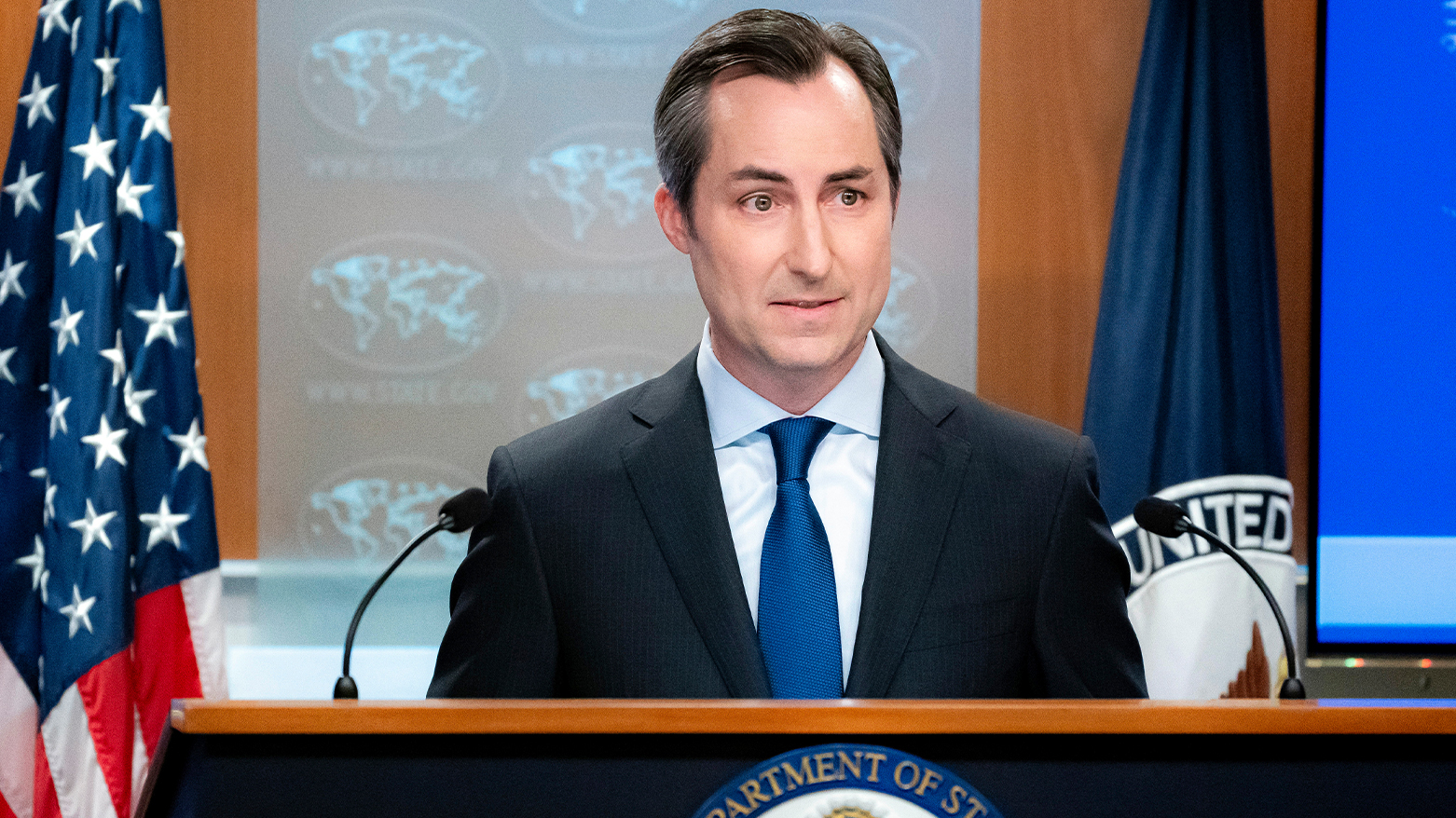U.S. Welcomes Kurdish Elections
Similarly, the US Consul General, speaking in fluent Kurdish, advised voters “to learn each party's priorities” during the campaign "to make the best decisions for themselves and their families, when they vote.”

WASHINGTON DC, United States (Kurdistan 24) U.S. State Department Spokesperson Matthew Miller expressed Washington’s welcome for the Kurdish parliamentary elections, which are scheduled to be held in ten days time.
In doing so, he also explained that the Kurdish vote is an issue of international interest, and there will be several international entities observing the elections.
Read More: Erbil officials finalize preparations for peaceful sixth Kurdistan Parliamentary elections
Oct. 20: Kurdish Parliamentary Elections
The vote is being held, after some delay, caused in part by dubious rulings from Baghdad’s Federal Supreme Court, which was suborned by Tehran through its head, Faiq Zaydan.
The elections will occur on Oct. 20, and Miller endorsed the event in Wednesday’s State Department briefing, as he responded to a journalist’s question.
“Elections are a vital element of the democratic process,” Miller said, and “we support all efforts to ensure that they are free, fair, and transparent” and held “without further delay.”
The elections are being supervised by Iraq’s Independent High Electoral Commission (IHEC), which was established by the U.S. in 2004, after the overthrow of Saddam Hussein and his regime.
“We are in close contact with [IHEC],” Miller explained, “as well as the United Nations Assistance Mission for Iraq [UNAMI], as they ensure that election preparation meets key milestones.”In addition, “staff volunteers from U.S. mission Iraq will participate in observing the elections at polling sites across the IKR [Iraqi Kurdistan Region],” he continued. “That’s something we’re doing in coordination with the United Nations, international election experts, and other like-minded diplomatic missions.”
Elections Are More than Just a Vote
Miller stressed that meaningful elections involve more than just casting a vote—which happens regularly in countries that could scarcely be called democratic.
“We commend the active participation of civil society and the media for supporting political discourse and raising awareness around issues of importance to Iraqi Kurdistan Region residents in the lead-up to these elections,” Miller said.
The U.S. Consul General in Erbil, Steve Bitner, stated something similar on Sunday, in a video posted by the Consulate on X.
Standing in front of the Kurdistan Parliament building, Bitner spoke in fluent Kurdish. In the video (with English subtitles), he advised Kurdish voters “to learn each party's priorities” during the campaign season, so “they can make the best decisions for themselves and their families, when they vote.”
Campaign season is a vital period in the electoral process. During this time, we encourage voters in the IKR to learn each party’s priorities so they can make the best decision for themselves and their families when voting. pic.twitter.com/IFA1rn9OFm
— U.S. Consulate General Erbil (@USCGERBIL) October 6, 2024
So far, the campaign has gone reasonably well, according to the outside observers. UNAMI has been involved in training IHEC staff to supervise the Kurdish elections.
UNAMI Office of Electoral Assistance participated in an IHEC training of polling staff on electoral procedures in preparation for the 20 October 2024 Kurdistan Region's parliamentary elections. pic.twitter.com/bmPSC9bo2g
— UNAMI (@UNIraq) October 7, 2024
IHEC has generally been positive about the elections. Last month, it tested the electronic voting cards that will be used. The head of IHEC’s media team, Emad Jamil, subsequently stated that they are working properly and will prevent fraud, as he predicted that the vote “will be a model election.”
Read More: Reaching final phase for electoral procedure
On Wednesday, Jamil explained that IHEC had received 40 complaints about the election, and it was dealing with them. But “the campaign is generally going well, and our teams are monitoring the process on a daily basis, both on social platforms and in the streets.”
Read More: IHEC announced 40 complaints filed during election campaign